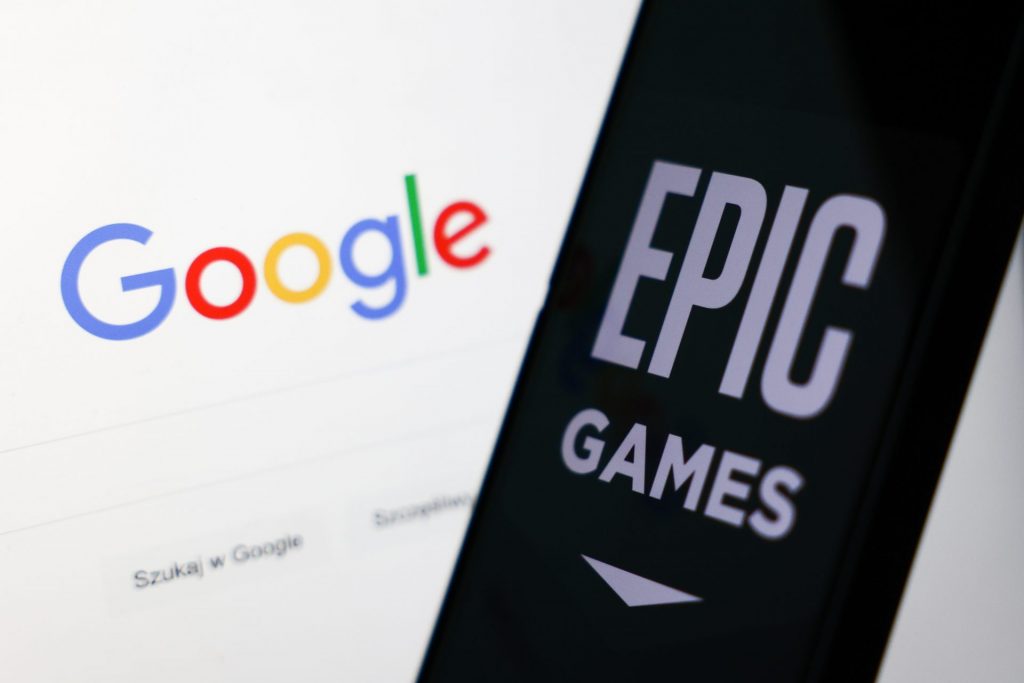Appeals Court: Google violated antitrust laws by pulling Fortnite from Play Store

A U.S. Appellate Court upheld a jury verdict in the Epic Games v. Google lawsuit that centered on Epic’s allegations that Google violated antitrust laws when it purposefully prevented third-party downloads of the video game Fortnite. Epic Games’ founder called the ruling a win as Google vowed to appeal again.
Judge M. Margaret McKeown wrote in the Ninth Circuit Court of Appeals’ rejection of Google’s claim that Epic Games’s lawsuit against Apple applied in this one and that the trial and bench juries should have differed, according to court records. Google told tech website The Verge that it would appeal.
Epic Games filed a similar lawsuit against Apple, which it lost in some claims. A District Court judge ruled Apple exercised a “considerable” power over the market but not a monopoly because of competition with Google. The judge, however, found Apple liable for violating California’s unfair competition law.
McKeown wrote Apple and Epic Games appealed the rulings, which the court upheld all except for Epic Games’s obligation to pay attorneys’ fees. She declined Google’s notion that their lawsuit mimicked Apple’s, stating in part that Epic Games’s claims against Apple are about “meaningfully different commercial realities and theories of harm” compared to the ones against Google.
She added that the District Court’s jury trial was fair, rejecting Google’s counterclaim that it wasn’t, as the judge told the two parties that only one jury trial would be held for the wave of antitrust lawsuits against Google that landed in a judge’s court. Epic Games v. Google, Inc. was the only lawsuit to go to a trial, as others settled.
Epic Games founder and CEO Tim Sweeney praised the ruling on X as a “total victory.”
Former Federal Trade Commission Chair Lina Khan wrote on X, celebrating the ruling as an “important win.”
Epic Games implements ‘Project Liberty’
Epic’s launch of its now-popular game “Fortnite” in 2018, where users endured an “adrenaline-fueled survival,” McKeown wrote, decided by “blazes of destruction and glory.” It quickly gained traction across multiple platforms, spurring Epic Games to launch the free app on mobile devices.
Epic Games embedded code in the Fortnite game that gave those who downloaded the app from Epic a discount on in-app purchases. That same discount wasn’t provided to people who downloaded it from Google’s and Apple’s proprietary app stores.
Apple and Google took issue with the code and restricted Fortnite from being downloaded, The Verge reported Thursday. In Google’s instance, phone users were getting the game from other providers. For Apple, applications and games could only be downloaded from the App Store at the time.
Google’s restrictions included leveraging agreements with nearly two dozen game developers to give them cash payments for exclusively launching their applications on Google’s Play Store and not any other Android app store. The technology company then required all developers to process in-app purchases using Google Play Billing and pay commissions on all in-app transactions.
Epic Games sued both companies in 2020. It lost against Apple in 2021 and won against Google in 2023.
McKeown wrote that the Epic Games v. Google, Inc. lawsuit hinged on “longstanding principles of trial procedure, antitrust, and injunctive remedies.”
A jury unanimously ruled in December 2023 that Google violated California and federal antitrust laws. A U.S. District Court judge later issued a three-year injunction on Google, prohibiting the tech company from providing exclusive benefits to developers, phone carriers or manufacturers in exchange for limiting Android app releases to the Play Store.
The injunction also required Google to give users information and access to alternative app billing, pricing and distribution channels; for the company to distribute third-party apps on the Play Store and permit Android app stores to access the Play Store’s app catalog.
“Although Google and Apple compete for mobile-gaming downloads and mobile-gaming in-app transactions, they do not compete in the Android-only app distribution and in-app billing markets, where Google competes against Samsung, Amazon, and others,“ McKeown wrote.
Next steps in litigation
The Appellate Court ruling initiates the next steps in Epic’s lawsuit against Google, which is for the two parties to name three technical committee members and for Google to make the changes outlined in the injunction.
In April, U.S. District Court Judge Yvonne Gonzalez Rogers ruled Apple failed to comply with her injunction order to reform the App Store, Reuters reported then. She referred the tech giant to federal prosecutors for criminal contempt. Apple told Reuters that it disagreed with the decision and “will comply with the court’s order and we will appeal.”
As for Epic, Sweeney wrote on X that the company’s Epic Games Store for Android will be coming soon to the Google Play Store. Fortnite is currently available on Apple’s App Store.





